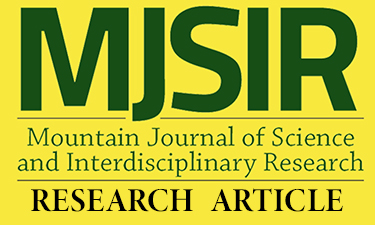Effectiveness of K to 12 DepEd-Provided and Teacher- Made Modules on Student Performance in Technology and Livelihood Education Exploratory Subject Areas
Main Article Content
Abstract
Transition to K to 12 curriculum is one of the challenges in the Philippine educational system. Teachers and students are faced with problems that need adjustment. The study used a quasi- experiment design to explore the effectiveness of the modules made by the subject area teacher and the modules introduced by the Department of Education (DepEd) to enhance the K to 12 curriculum competencies, particularly in the Technology and Livelihood Education (TLE) subject area for Grade 7. The study revealed that both modules could be considered effective based on the computed mean scores from the pretest and post-test. Students’ perceived level of satisfaction with the content, format, and instructions of both modules is “very satisfactory.” Students find the teaching strategies and content mastery of the subject area teacher as “excellent.” Based on the findings, any of the two modules may be used when teaching TLE for Grade 7 with some revisions and provision of more “high-tech” facilities to enhance the teaching and learning process further. Providing learning stations to practice the different skills learned in TLE is also recommended. Teachers must continuously update themselves by attending seminars, trainings and coming up with modules containing essential knowledge and skills needed by learners.
Article Details
References
Ambayon, C. (2020). Modular Based Approach and Student’s Achievement Literature. Internal Journal of Education Literacy Studies, 8(3), 33-36. http://www.journals.aiac.org.au/index.php/IJELS/article/view/6198
Bolick, C.M., Berson, M., Coutts, C., & Heinecke, W. (2003). Technology Applications in Social Studies Teacher Education: A Survey of Social Studies Methods Faculty. Contemporary Issues in Technology and Teacher Education, 3(3), 300-309. https://www.learntechlib.org/p/19913/
Limon, M.R. (2016). The Effect of Adequacy of School Facilities on Students’ Performance and Achievement in Technology and Livelihood Education. International Journal of Academic Research in Progressive Education and Development, 5(1), 45-58. https://mmerogostar.com/papers_submitted/2060The_Effect_of_the_Adequacy_of_SchoolFacilities_on_Students%E2%80%99Performance_and_Achievement_in_Technologyand_Livelihood_Education1.pdf
Magno, C. (2011). Analysis of the Basic Education of the Philippines: Implications for the K to 12 Education Program. SEAMEO-INOTECH, Philippines. https://www.academia.edu/3814475 Analysis_of_the_Basic_Education_of_the Philippines
Nardo, M.T.B. (2017) Modular Instruction Enhances Learning Autonomy. American Journal of Educational Research, 5(10), 1024-1034. http://10.12691/education-5-10-3
Ogbe, A.O., & Omenka, J. (2017). Improvisation and utilization of resources in the teaching and learning of science and mathematics in secondary schools in Cross River state. Global Journal of Educational Research, 16(1), 21-28. https://www.ajol.info/index.php/gjedr/article/view/156233
Onditi, S. (2018). Effect of use of Instructional Materials on Learner Participation in Science Classroom in Preschool in Rongo Town. International Journal of Humanities and Social Science Invention, 7(9), 52-61. http://wwwijh ssi.org/papers/vol7(9)/Version-1/I0709015261.pdf
Orakwue, I.T.C. (2000). Social Studies Education Basics for Tertiary Institutions. Onitsha: Desvic Publishers
Pedangle Y., & Somaoang, J. (2020). The Implementation of the Modular Distance Learning in the Philippine Secondary Schools. Proceedings of the 3rd International Conference on Academic Research in Science, Technology and Engineering. https://www.doiorg/10.33422/3rd.icate.2020.11.132
Sudhakar, J. (2017). Teaching Aids and Resources Aids The Best Learning. Linkedin. https://www.linkedincom/pulse/teaching-aids-resources-best-learningms-jemi-sudhakar
Tan, M.C. (2021). Technology and Livelihood Education (TLE) Instruction in the Secondary Schools in Northern Samar Division, Eastern Philippines. Asian Journal of Advanced Research and Reports, 15(2), 75-84. https://doi.org/10.9734/ajarr/2021/v15i230369
Ughamadu, K.A. (1992). Curriculum: Concepts, Development, and Implementation. Onitsha: Emba Printing and Publishing Company.

